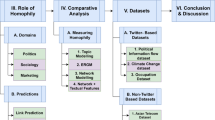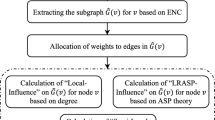Abstract
The FIRE trust and reputation model is a de-centralized trust model that can be applied for trust management in unstructured Peer-to-Peer (P2P) overlays. The FIRE model does not, however, consider malicious activity and possible collusive behavior in nodes of network and it is therefore susceptible to collusion attacks. This investigation reveals that FIRE is vulnerable to lying and cheating attacks and presents a trust management approach to detect collusion in direct and witness interactions among nodes based on colluding node’s history of interactions. A witness ratings based graph building approach is utilized to determine possibly collusive behavior among nodes. Furthermore, various interaction policies are defined to detect and prevent collaborative behavior in colluding nodes. Finally a multidimensional trust model FIRE+ is devised for avoiding collusion attacks in direct and witness based interactions. The credibility of the proposed trust management scheme as an enhancement of the FIRE trust model is verified by extensive simulation experiments.





Similar content being viewed by others
References
Baras JS, Jiang T (2005) Managing trust in self-organized mobile ad hoc networks. In: The Proceedings of the 12th Annual Networks and Distributed System Security Symposium (NDSS) Workshop, San Diego, February
Buchegger S, Boudec J (2004) A Robust reputation system for P2P and mobile ad-hoc networks. In: Proceedings of the 2nd Workshop on Economics of Peer-to-Peer Systems, June
Ebay Internet website www.ebay.com
Hang C, Wang Y, Singh MP (2008) An adaptive probabilistic trust model and its evaluation. In: The Proceedings of International Conference on Autonomous Agents and Multiagent Systems (AAMAS08), pp 1485–1488
Huynh T, Jennings N, Shadbolt N (2006) An integrated trust and reputation model for open multi-agent systems. Journal of Autonomous Agents Multi-Agent Systems 13(2):119–154
Jurca R, Faltings B (2003) Towards incentive-compatible reputation management. In: Falcone R, Barber S, Korba L, Singh M (eds) Trust, reputation and security: theories and practice. Vol. 2631 of Lecture Notes in Artificial Intelligence. Springer-Verlag pp 138–147
Kerr R, Cohen R (2009) Smart cheaters do prosper: defeating trust and reputation systems. In: The Proceedings of International Conference on Autonomous Agents and Multiagent Systems (AAMAS09), Budapest, Hungary, pp 993–1000
Li H, Singhal M (2007) Trust management in distributed systems. IEEE Computers 40(2):45–53
Li J, Li R, Kato J (2008) Future trust management framework for mobile ad hoc networks: security in mobile ad hoc networks. IEEE Commun Mag 46(4):108–114
Lian Q, Zhang Z, Yang M, Zhao B, Dai Y, Li X (2007) An empirical study of collusion behavior in the Maze P2P file-sharing system. In: Proceedings of the 27th International Conference on Distributed Computing Systems (ICDCS 2007), pp 56–62
Lim Choi Keung S, Griffiths N (2008) Towards improved partner selection using recommendations and trust. In: Falcone R et al (eds) Trust in Agent Societies (TRUST 2008). Vol. 5396 of Lecture Notes in Computer Science, pp 43–64, Springer-Verlag
Lim Choi Keung S, Griffiths N (2009) Building a trust-based social agent network. In: Proceedings of the 12th International Workshop on Trust in Agent Societies, pp 68–79
Narula P, Dhurandher S, Misra S, Woungang I (2008) Security in mobile ad-hoc networks using soft encryption and trust-based multi-path routing. International Journal of Computer and Communications 31(4):760–769
Papadimitratos P, Haas ZJ (2003) Secure message transmission in mobile ad hoc networks. Elsevier Ad Hoc Networks Journal 1(1), January–March
Ramchurn SD, Huynh D, Jennings NR (2004) Trust in multi-agent systems. Knowl Eng Rev 19(1):1–25
Rehbock S, Hunt R (2009) Trustworthy clients: extending TNC to web-based environments. International Journal of Computer and Communications 32(5):1006–1013
Sabater J, Sierra C (2001) Regret: a reputation model for gregarious societies. In: Fourth Workshop on Deception Fraud and Trust in Agent Societies, pp 61–70
Salehi-Abari A, White T (2009) Towards con-resistant trust models for distributed agent systems. Proceedings of the Twenty-first International Joint Conference on Artificial Intelligence (IJCAI09)
Skogsrud H et al (2003) Model-driven trust negotiation for web services. IEEE Internet Comput 7(6):45–52
Srivatsa M, Liu L (2006) Securing decentralized reputation management using TrustGuard. J Parallel Distrib Comput 66(9):1217–1232
Teacy W, Patel J, Jennings N, Luck M (2005) Coping with inaccurate reputation sources: experimental analysis of a probabilistic trust model. In: The Proceedings of International Conference on Autonomous Agents and Multiagent Systems (AAMAS05), New York, pp 997–1004
Uszok A, Bradshaw J, Jeffers R (2004) KAoS: a policy and domain services framework for grid computing and semantic web services. In: The Proceedings of 2nd International Conference on Trust Management (iTrust), Lecture Notes in Computer Science, Springer-Verlag, pp 16–26
Wang J, Chiu C (2008) Recommending trusted online auction sellers using social network analysis. Expert Syst Appl 34(3):1666–1679
Yu B, Singh M (2000) A social mechanism of reputation management in electronic communities. Proceedings of the 4th International Workshop on Cooperative Information Agents IV, The Future of Information Agents in Cyberspace. Springer-Verlag, pp 154–165
Yu B, Singh M (2003) Detecting deception in reputation management. In: The Proceedings of International Conference on Autonomous Agents and Multiagent Systems (AAMAS03), New York, pp 73–80
Yunfang F (2007) Adaptive trust management in MANETs. Proc. 2007 International Conference on Computational Intelligence and Security, Harbin, China, pp 804–808, 15–19 Dec
Zouridaki C, Mark B, Hejmo M, Thomas R (2005) A quantitative trust establishment framework for reliable data packet delivery in MANETs. In: Proceedings of the 3rd ACM Workshop on Security of Ad Hoc and Sensor Networks (SASN’05), pp 1–10, November
Zouridaki C, Mark B, Hejmo M, Thomas R (2006) Robust cooperative trust establishment for MANETs. Proceedings of the fourth ACM Workshop on Security of Ad Hoc and Sensor Networks, pp 23–34, Virginia, October 30
Author information
Authors and Affiliations
Corresponding author
Rights and permissions
About this article
Cite this article
Qureshi, B., Min, G. & Kouvatsos, D. Countering the collusion attack with a multidimensional decentralized trust and reputation model in disconnected MANETs. Multimed Tools Appl 66, 303–323 (2013). https://doi.org/10.1007/s11042-011-0780-7
Published:
Issue Date:
DOI: https://doi.org/10.1007/s11042-011-0780-7




